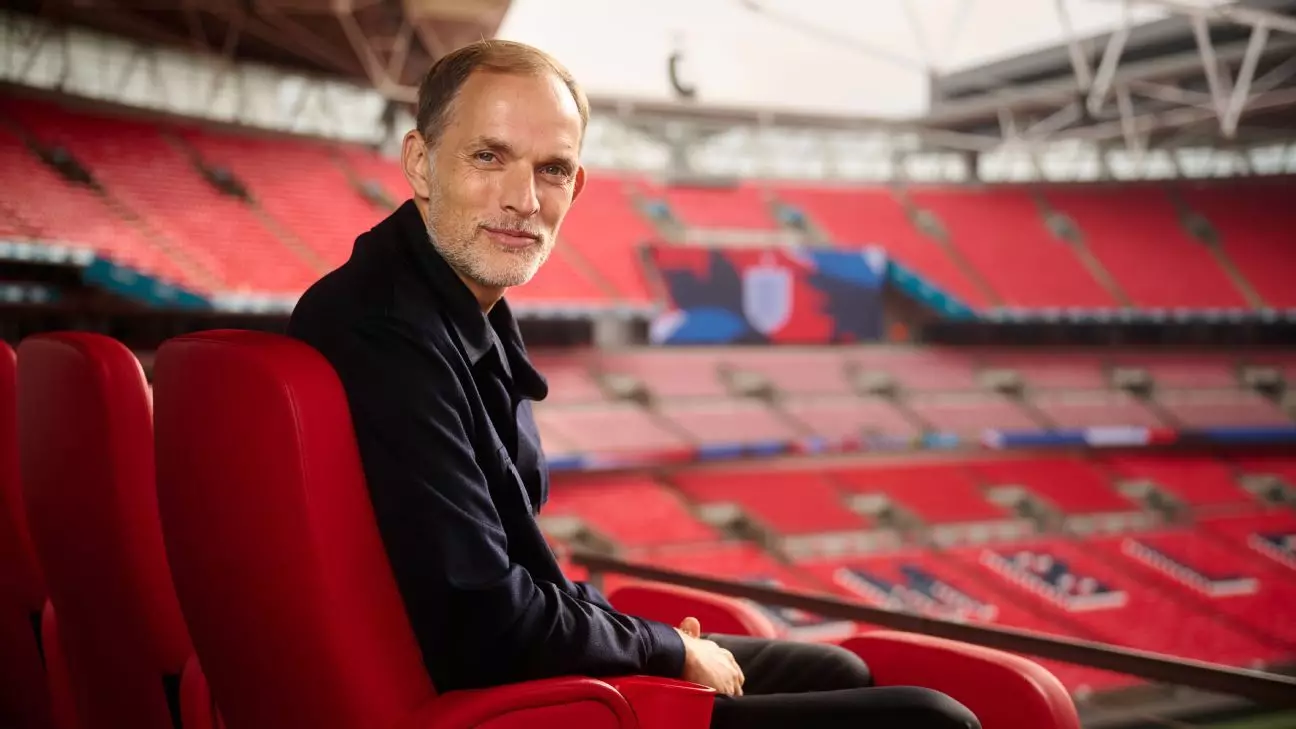New England head coach Thomas Tuchel is not one to shy away from ambition. The German tactician has openly declared his objective: to win the 2026 World Cup. Having taken the reins from Gareth Southgate, who led England close to championship glory multiple times, Tuchel recognizes the weight of expectations that accompanies the role. Under Southgate, England reached two finals and a semi-final in major tournaments, but a coveted trophy has eluded the squad since 1966. Tuchel suggests that a few “nuances” and “details” have thwarted their efforts, hinting at a belief that the necessary ingredients for success are already present within the team.
The transition of leadership from Southgate to Tuchel highlights the urgency felt by the Football Association (FA) to secure a coach capable of delivering results. Following Southgate’s departure post-Euro 2024, the FA appointed Lee Carsley as an interim manager before settling on Tuchel, a proven winner with an impressive track record that includes the UEFA Champions League title with Chelsea. This choice underlines a strategic pivot towards a coach who not only has experience at the highest levels of competitions but also a clear, winning mindset.
Interestingly, Tuchel will embark on his role with an 18-month contract commencing January 1, 2024. This timeline means his tenure aligns closely with one tournament cycle, raising questions about immediate success. However, Tuchel’s response to whether this season was ‘win or bust’ speaks volumes about his approach: he emphasized a collective goal-setting process and the importance of accountability. Such transparency fosters a culture of high expectations while also accepting the realities of competitive football.
In outlining his vision for the team, Tuchel focused on the need to cultivate an attacking style of play that aligns with the physicality and excitement inherent to English football. He believes the current squad—comprising young, hungry players—has the potential to play an energetic and dynamic game. By cultivating a strategic approach that emphasizes both attacking prowess and physical engagement, Tuchel aims to resonate with fans and players alike, creating a cohesive identity that can translate into on-field success.
Throughout his tenure, Southgate faced criticism despite securing deep tournament runs. While Southgate guided England to significant achievements, including a semi-final finish in the 2018 World Cup and a runner-up position in Euro 2020, the margin between success and failure can often be razor-thin. Tuchel’s insight into the “details” that determine outcomes in key matches reinforces the idea that a slight adjustment in tactics or mindset can lead to vastly different results.
The narrative of England’s near-misses in international tournaments adds another layer of complexity to Tuchel’s mission. Past failures, such as losing on penalties or narrowly exiting the competition, create a psychological barrier that must be addressed. Recognizing this, Tuchel calls for an unyielding belief in the squad’s capabilities, urging players to adopt a resilience that has historically been elusive for the national team. His philosophy hinges on the premise that mental fortitude is as crucial as technical ability when competing for titles.
Moreover, the FA’s decision to appoint a foreign coach raises questions about the progression of homegrown talent in English football. While the development of domestic coaches remains a priority, Bullingham, the FA chief executive, defended the appointment of Tuchel by pointing out the global nature of high-level football management. The ambition to achieve immediate success often necessitates looking beyond home soil for leadership and expertise. A balanced approach, combining international experience with nurturing local talent, may well serve to strengthen the sport domestically.
As Tuchel prepares for his role, he expresses a commitment to living in England, immersing himself in the culture and dynamics of the football scene. His intention to start work later allows him to focus on building a project without the distractions of immediate match commitments. This strategic step reinforces the idea that the path to success requires thoughtful planning and execution—something Tuchel appears keen to ensure.
Ultimately, Thomas Tuchel’s tenure promises a blend of ambition, tactical evolution, and a commitment to fostering a winning ethos within the England national team. With the 2026 World Cup on the horizon, all eyes will be on Tuchel as he attempts to rewrite history and conquer the challenges that lie ahead. His unwavering belief that England has the potential to win a major trophy may well serve as the catalyst for a renaissance in English football.

